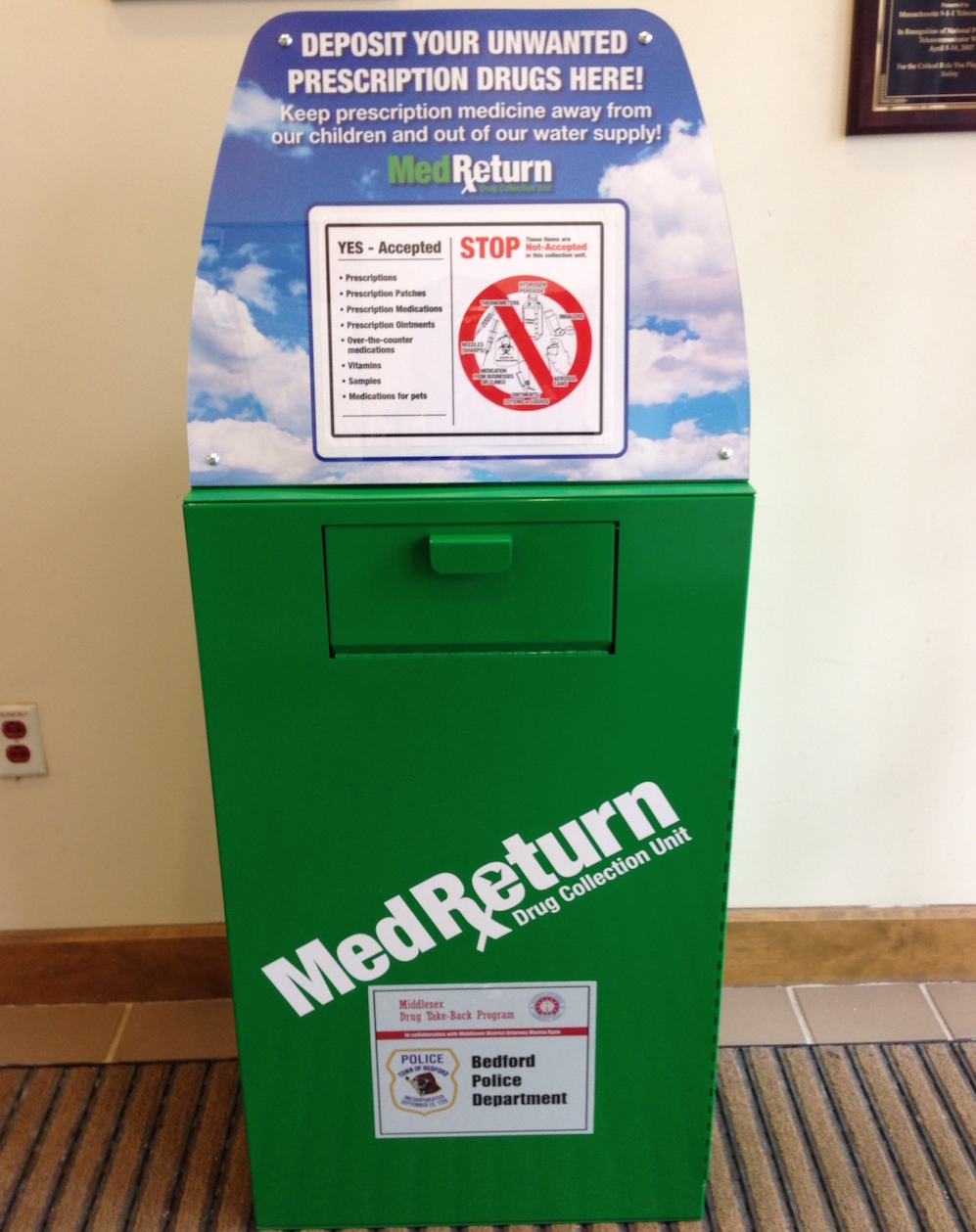
In the wake of a rash of heroin overdoses through North Haven, Connecticut, local police have stepped in with an innovative new measure.
Although anonymous drop-off boxes for prescription drugs are now commonplace throughout the country, police in North Haven are now applying the same tactic for illicit drugs. The med-return box is located in the lobby of the police headquarters, where anything but intravenous needles can be disposed of. Capt. Kevin Glenn told the Hartford Courant that “anyone who wishes to deposit the dangerous drugs can be assured you will have no contact with police personnel during the drop-off. There will be no questions asked.”
North Haven police have already been called to seven heroin overdose cases this month, while police in New Haven reported 20 overdoses and three drug-related deaths. Many of the overdoses involved users who thought they were receiving cocaine, but ended up consuming another substance, according to Glenn.
“The North Haven Police Department encourages all illicit drug users to take caution,” he said. “Any such drugs should be considered lethal.”
After emergency responders dealt with at least 16 overdoses in six hours last Thursday, including at least two deaths, officials in New Haven declared a public health emergency. The cause of the overdoses was a batch of tainted heroin laced with fentanyl. EMS and fire crews were given extra supplies of Narcan to combat the problem, but Rick Fontana of the New Haven Emergency Operations Center told NBC News the city is on short supply of the opiate overdose reversal drug.
In April, federal law enforcement authorities in Connecticut said they would begin treating every heroin overdose as a crime scene and “perform time-sensitive investigative techniques and preserve all evidence at the scene of an overdose death.” The response came after the state recorded 415 deaths last year from heroin and/or opioid poisoning, up from 327 the previous year.
“This initiative will enable law enforcement to quickly determine if a highly toxic drug is on the street and take steps to identify the source of the drug in order to keep it out of the hands of vulnerable users,” said U.S. Attorney Deirdre M. Daly at the time. Deputy Chief State’s Attorney Leonard C. Boyle added, “If we can establish that the dealer knew the heroin is tainted they can be charged with manslaughter.”
